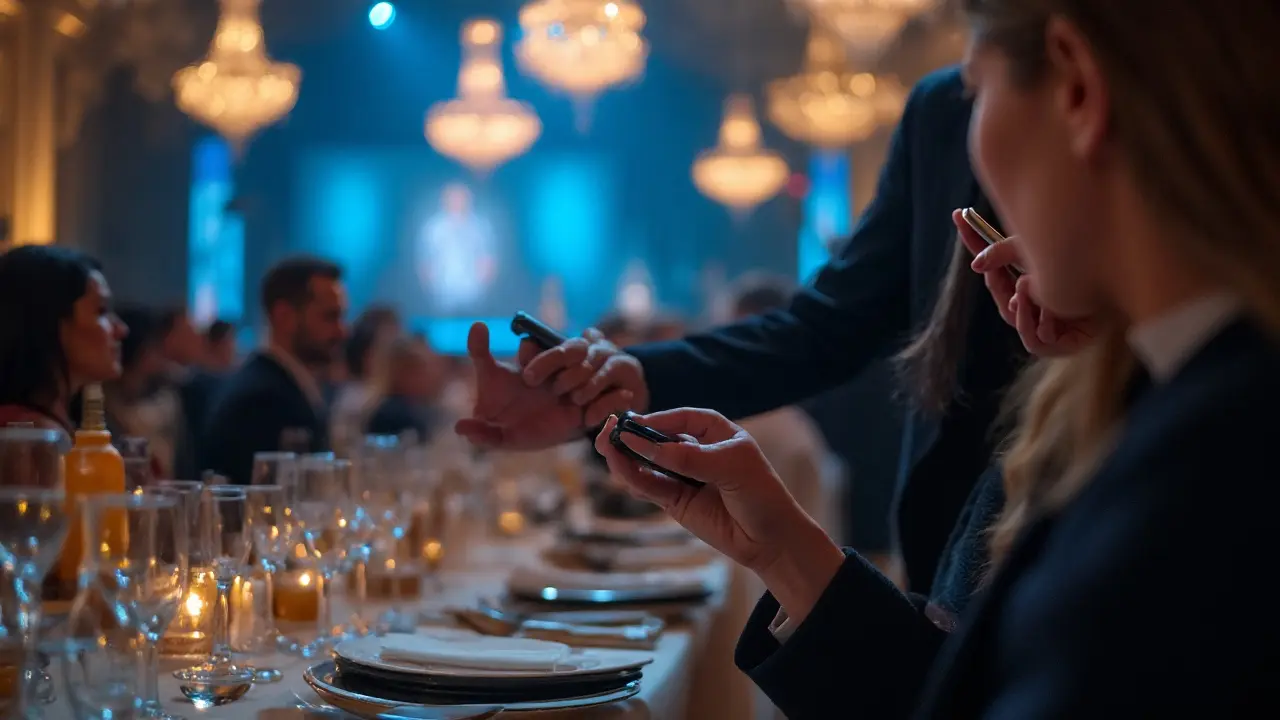People think "escort" and imagine a candlelit dinner. In Paris, the job is broader: social intelligence, cultural fluency, event navigation, and calm under pressure. If you're expecting a movie montage, you'll be disappointed. If you want a competent companion who makes you look good and feel at ease in a city that speaks its own language-this is the playbook.
- TL;DR: A modern escort in Paris is a social and cultural pro-part guide, part wing-person, part logistics buffer-with clear boundaries and strict discretion.
- Legal reality: paying for sexual services is penalized in France (Law No. 2016-444). Professional companionship is about social time, not sex.
- Expect planning help, etiquette coaching, smooth event navigation, and language support; agree on scope, boundaries, and timing upfront.
- Success = specific goals, a tight brief, and a safety/privacy plan. Use checklists to avoid missteps.
- When things go sideways-late invites, dress code surprises, strikes-there are simple contingency moves that keep you on track.
Beyond the Date: What a Paris Escort Actually Does
Paris can be unforgiving if you misread the room. The right companion doesn’t just sit pretty-they shift the energy, smooth the edges, and quietly protect your time and reputation. I’ve watched top founders walk into a gallery preview looking tense and leave with three warm intros and two follow-up meetings. That wasn’t luck; it was social design.
Think of roles, not labels. Here’s what tends to happen when things are done well:
- Cultural interpreter: Paris has layers-unspoken etiquette at a Saint-Germain salon is not the same as a fashion after-show in the 2nd. A good companion reads those codes and adjusts your pace, tone, and timing so you never feel out of place.
- Event co-pilot: From Paris Fashion Week (Menswear in June, Couture in July, Womenswear late September) to Paris+ par Art Basel in October, events are crowded and political. Your companion helps plan the route, run the room, and exit gracefully before the energy dips.
- Conversation wing-person: They seed small talk that fits the context-design at a Marais vernissage, sport at Roland-Garros, finance at a Champs-Élysées dinner-then step back so you can build a real connection.
- Reputation buffer: High-visibility settings attract attention. A seasoned companion notices cameras, gossip, and clingy strangers, and redirects without drama.
- Language bridge: Real-time French-to-English gloss that preserves tone. It’s not formal interpreting; it’s social translation, which is often more useful.
- Logistics calmer: Paris traffic, metro strikes, last-minute venue changes-this city tests your schedule. A calm pro protects your runway and keeps the mood light.
Two mindsets make all of this work: purpose and boundaries. A purpose keeps the evening from drifting ("two intros to curators" is better than "let’s see what happens"). Boundaries make it safe and professional-yours and theirs. No blurry lines, no awkward misunderstandings.
Here’s how that looks in real life:
- Corporate dinners in the 8th: Pre-brief on company politics, likely topics, and seating strategy. The companion covers small talk with your neighbor while you handle the decision-maker.
- Art weeks: Short stops at three galleries instead of one long stay, with a pre-written intro line about your tastes to spark useful conversations.
- Haute couture shows: Whispered etiquette cues-when to greet, when to hold, when to move-so you look as if you’ve done this forever.
- Private clubs or salons: They track the host’s rhythms and keep you from overstaying the welcome, which is a quiet Parisian power move.
Discretion isn’t a perk here-it’s the baseline. Many companions are open to simple NDAs; even without paper, the code is tight: no photos without permission, no tagging, no loose talk about names or locations. The best ones are forgettable in public and unforgettable in the moment.
On the legal front, be crystal clear: in France, purchasing sexual services is penalized (Law No. 2016-444 of 13 April 2016). Companionship is social time only. Agencies and independent companions who operate professionally will state this explicitly and keep meetings public-facing and event-oriented. Treat this as a social, cultural service-nothing more.

Working Together: Scope, Etiquette, Legal Basics, and Risk Control
If you want a smooth night, do the unsexy work before you meet. Paris rewards preparation and punishes chaos.
Five steps that make 90% of engagements go right:
- Define your outcomes: Pick 1-3 measurable wins. Example: "two warm intros to buyers during Paris+" or "feel at ease at a Michelin-star dinner and avoid faux pas." Vague goals create awkward silence.
- Share a tight brief: Send a few lines on who you are, the event, the mood you want (quiet/observant vs outgoing), people to meet, and no-go topics. A photo of the outfit helps with visual harmony.
- Agree on boundaries and signals: Keep it simple. Public venues only, no private rooms, no physical affection beyond socially normal greetings. Choose a discreet signal for exits ("I’ll say I need air" means time to go).
- Lock logistics: Arrival window, venue sequence, backup plan if the first place is full, safe rides home. In Paris, always have a Plan B street or a café fallback within a 5-10-minute walk.
- Document terms: Duration, rate for time (not outcomes), cancellations, confidentiality expectations. Professional companions treat this like any service engagement.
Etiquette makes or breaks the vibe. Quick rules of thumb:
- Dress code: Aim for cohesion. If you’re black tie at Opéra Garnier, your companion matches tone. If you’re "gallery casual," think tailored jacket, low-key sneakers, no loud logos.
- Greetings: Handshakes are default with new contacts; cheek kisses happen among friends. Follow your companion’s lead.
- Pace: Paris likes conversation that breathes. No hard sells. Your companion will give you soft entries and exits; take them.
- Phone discipline: One glance per hour looks powerful. Your companion can handle timing cues and logistics so you can stay present.
Privacy and data hygiene matter-especially now. Keep it lean: first name, schedule, event names, and an alternate contact method. There’s no reason to share passport scans, home address, or your kids’ names. If you store any ID details or messages, align with CNIL’s data-minimization principles (France’s data regulator). Many pros will accept messaging apps with disappearing threads and stick to public meet points.
Legal basics you should actually remember:
- Companionship only: Purchasing sexual services is penalized in France (Law No. 2016-444). Don’t blur that line; don’t ask for it.
- Public-facing settings: Restaurants, openings, matches, theaters-clear, visible, social. It keeps everyone safe and the purpose clean.
- Transparency about time: You’re compensating for time and preparation, not outcomes or private acts. Stick to that language in messages and agreements.
Common pitfalls-and what to do instead:
- Vague briefs: Swap "show me Paris" for "two galleries in the Marais, one cocktail at a quiet spot, then a 30-minute debrief".
- Last-minute invites: Parisian events often need names at the door. If something pops up, your companion can help improvise, but temper expectations.
- Dress code misses: If in doubt, go slightly more formal. Your companion will calibrate on arrival (ditch the tie, swap shoes).
- Transport traps: During strikes or Fashion Week, build 20-30% travel buffer and cluster venues by neighborhood.
- Over-sharing: Stay light on personal details. Social charm beats memoirs.
Heuristics I use as a writer and noticer of people:
- 3-2-1 Plan: 3 outcomes, 2 boundaries, 1 exit signal. If you can’t state them, you’re not ready.
- Green-Amber-Red Talk: Green topics (food, art, sport), amber (work anecdotes), red (politics, money details). Your companion steers; you avoid potholes.
- 90-Minute Rule: Reassess the night at the 90-minute mark. If energy dips, switch venues or close on a high note.
A quick note on money talk: keep it professional-clear rate for time, transparent overtime, and a straightforward cancellation window. Ask for a simple receipt. Anything else is messy and unnecessary.

Checklists, Scenarios, FAQs, and Next Steps
Here’s the practical kit that saves nights and reputations.
Pre-engagement checklist (10 minutes):
- Your 1-3 outcomes, written down.
- Event names, start times, and a neighborhood map sketch.
- Dress code photo (yes/no on tie, heel height, outerwear plan).
- Boundaries list: public venues, no private rooms, no after-parties at residences.
- Signals for exits and topic changes.
- Plan B venue within walking distance.
- Ride options: metro line, taxi stand, ride app, or car service.
- Privacy settings: limited bio, no tags, no photos without mutual consent.
On-the-day checklist:
- Confirm arrival window (15-20 minutes before first event).
- Weather check (umbrella, light jacket). Paris loves surprise rain.
- Tickets/QR codes in a single album on your phone.
- Cash card and ID-separate from your main wallet.
- Conversation seeds: two current shows, one sports headline, one local restaurant note.
Post-engagement debrief (five minutes):
- Did we hit the outcomes? If not, what’s the follow-up plan?
- Note names and micro-details while they’re fresh ("loves Brutalist architecture," "early morning runner").
- What should we do differently next time-earlier arrival, quieter venue, tighter guest list?
Scenarios and how a companion helps:
- Business traveler, first time in Paris: You want to avoid clichés and tourist traps. The companion curates a two-stop evening-left-bank gallery preview, then a classic brasserie where the host actually cares about locals. You leave fed and connected, not staged.
- Art buyer during Paris+ par Art Basel: The room is thick with insiders. Your companion identifies two approachable curators, makes warm intros using your brief, and avoids the cluster of cameras near a celebrity collector.
- Founder between investor meetings: You’re socially on empty. The companion keeps conversation light, screens time-sinks, and gets you out at 10:30 with energy left for tomorrow.
- LGBTQ+ traveler in the Marais: You want safe, welcoming venues without the tourist sheen. A companion who knows the scene navigates peak times and gives you a read on each space’s vibe before you commit.
- Couple in town for a black-tie gala: You’re worried about protocol. The companion keeps you in rhythm-greetings, seating, toast timing-and helps you float between tables without feeling stiff.
Mini‑FAQ:
- Is this legal in France? Paying for social companionship and time is lawful. Purchasing sexual services is penalized under Law No. 2016-444. Keep it social and public.
- Do NDAs make sense? Often, yes. Simple, mutual confidentiality can protect both sides. Most pros will honor discretion even without documents, but clarity is better than hope.
- How much personal info should I share? Minimal. First name, event, and preferences. Avoid addresses, employer details, or family info. CNIL’s data-minimization principle is a good mental model.
- What if paparazzi or bloggers show up? Your companion can shift your position, suggest a quick venue change, or place a friendly body buffer. Don’t engage; don’t run.
- What if I feel uncomfortable? Say so. Use the agreed signal. A pro will adapt or suggest closing the night. Boundaries are not negotiable.
- What should I talk about? Lead with the room: the art on the wall, the chef’s twist on a classic, the match everyone watched. Save heavy topics for private contexts.
- How do we handle photos? Default to no photos, no tags. If you both agree on a shot, keep it neutral-no venue markers, no faces of others in frame.
Next steps by persona:
- Solo traveler on a tight schedule: Pick one neighborhood per night (Saint‑Germain, Marais, 1st). Share three must‑see spots and a hard end time.
- Executive in town for meetings: Ask your companion to map venues to your calendar, cut commute time, and propose a quiet spot for a post‑event debrief.
- Art or fashion week guest: Confirm guest lists 24-48 hours out. Build a two‑tier plan: A-list stop, then an intimate spot for real talk.
- Local playing host: Use your companion as a vibe barometer. They’ll tell you if the plan reads "tourist" and swap in something that feels native.
Troubleshooting quick fixes:
- Event is full: Switch to Plan B within a 10-minute walk. Your companion should have two backups ready.
- Dress code mismatch: Adjust on the margins-lose the tie, add a scarf, change shoes. Paris forgives confident tweaks.
- Conversation stalls: Use the room. Ask about the chef’s special, a featured artist, or the origin of a wine by the glass. Your companion will re‑seed momentum.
- Schedule slips 30 minutes: Drop the middle stop. Protect the anchor event and the exit time.
- You sense gossip heat: Move, don’t freeze. Your companion will guide you to a calmer corner or suggest a new venue.
One last field note from me: the best nights look effortless because someone did the work backstage. In Paris, that’s the difference between being in the city and being in the scene. A skilled companion makes the latter feel natural, safe, and memorable-no theatrics, no mess, just flow.

